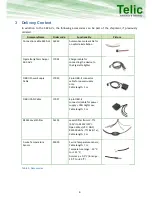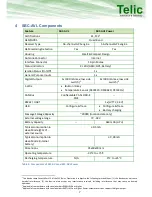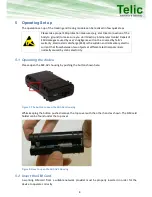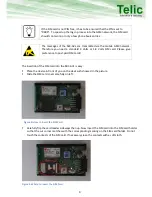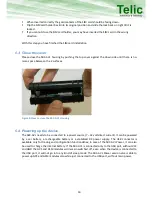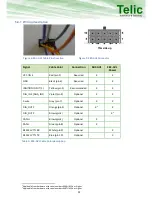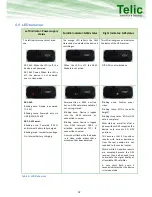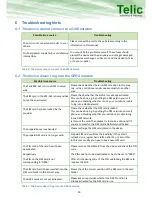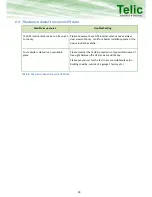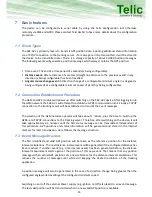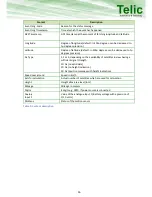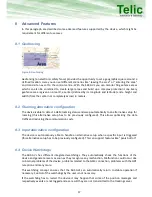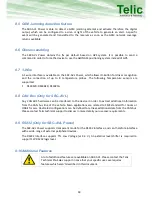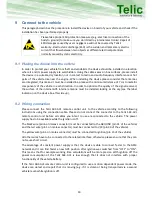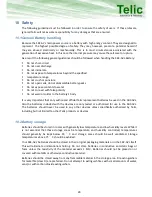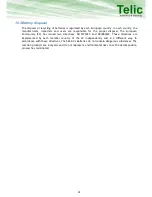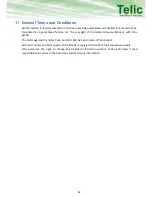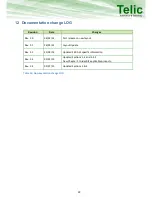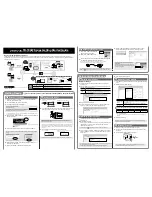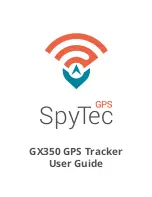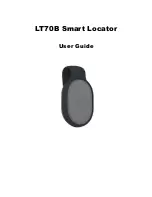
dfdfdsf
20
10 Safety
The following guidelines must be followed in order to ensure the safety of users. If these rules are
ignored Telic will not assume responsibility for any damages that are encured.
10.1 General Battery handling
Because the SBC-AVL main power source is a battery with high energy content. They are designed to
represent the highest possible degree of safety. They may, however, present a potential hazard if
they are abused electrically or mechanically. This is in most circumstances associated with the
generation of excessive heat. In this case the internal pressure may cause the cell case to rupture.
As a result the following general guidelines should be followed when handling the SBC-AVL Battery:
Do not short-circuit
Do not over discharge
Do not incinerate
Do not expose to temperatures beyond the specified
temperature range
Do not crush or puncture
Do not open cells, do not disassemble battery packs
Do not expose contents to water
Do not connect with false polarity
Do not weld or solder to the battery’s body
It is very important that only authorized official Telic replacement batteries be used in the SBC-AVL.
Also the batteries included with the devices are only tested or authorized for use in the SBC-AVL.
The batteries should never be used in any other devices unless specifically authorized by Telic,
including but not limited to other Telic products or devices.
10.2 Battery storage
Batteries should be stored in rooms with generally low temperature and low humidity levels. While it
is not essential that these storage areas be temperature and humidity controlled, temperatures
should generally be kept below 35
°
C and storage areas should be well ventilated. Storage
temperatures above 75
°
C should be avoided.
Your SBC-AVL batteries should be stored in their original packaging materials or in the SBC-AVL itself.
This will eliminate unintentional shorting. Do not store batteries in conductive anti-static bags or
foam unless the resistivity of the material exceeds 1 M
Ω
. Batteries should not be placed on or
covered with metallic or otherwise conductive material.
Batteries should be stored away from any flammable material in the storage area. Fire extinguishers
for metal fire (class D) are preferred. Do not attempt to extinguish fires with small amounts of water,
sand, or with carbon dioxide extinguishers.

